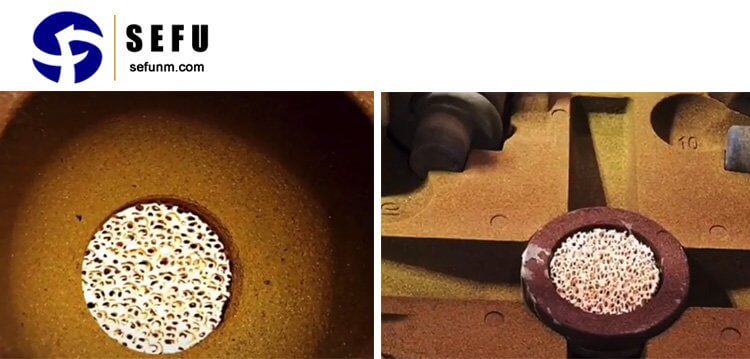Introduction
Steel is an essential material in modern economies, and its demand continues to grow globally. Steel is often used to build infrastructure, machinery, vehicles, and consumer goods. As the demand for steel is on the rise, the production of high-quality steel is becoming an increasingly essential issue in the steel and cast metals industry. One of the critical steps in steel production is the casting process, which requires filtering to remove impurities.
Zirconia ceramic foam filters have become popular in the casting process to improve the quality of steel. They are reusable filters that can reduce costs and improve the quality of steel production. This article discusses the application of zirconia ceramic foam filters in steel casting plants and cast steel production technology, process design, and quality issues.
Zirconia Ceramic Foam Filters in Steel Casting Plants
Casting is the process of pouring molten steel into molds to create different shapes and sizes. However, before the casting process, the molten steel must be filtered to remove impurities. Impurities in steel may cause defects such as porosity, slag inclusion, and other defects that reduce the strength and durability of the steel.

Ceramic foam filters are effective in removing impurities from molten steel. The filters consist of zirconia, alumina, and silica, which have high-temperature resistance, strength, and can provide a porous structure to trap impurities from molten steel. Zirconia ceramic foam filters are preferred in many steel casting plants because they can remove impurities such as slag, inclusions, and oxide, which can be detrimental to the quality of steel.
Zirconia ceramic foam filters are also preferred because they are reusable and easy to clean. After use, the filters can be cleaned, and the impurities removed. This makes it easier to maintain a clean and efficient casting process in steel plants.
Cast Steel Production Technology and Process Design
The quality of steel depends on the technology used in the production process. Cast steel production technology has improved over the years, and many steel plants have adopted new technologies to produce high-quality steel.
Zirconia ceramic foam filters play an essential role in the cast steel production process. The filters can improve the quality of steel by reducing impurities and increasing the mechanical properties of steel.
Process design is also essential in producing high-quality steel. The casting process must be designed to ensure that molten steel flows efficiently through the casting mold. The design should also minimize the formation of defects such as porosity and inclusions in the final product.
Quality Issues in Steel Production
The quality of steel is a critical factor in determining the durability and strength of final products. Defects in steel can lead to early failure of products and reduce customer satisfaction.
Some of the quality issues that affect steel production include porosity, inclusions, and surface defects. Porosity refers to the presence of small pockets of air or gas within the steel. Inclusions refer to impurities trapped within the steel, while surface defects refer to irregularities on the surface of cast steel.
Zirconia ceramic foam filters can help reduce the incidence of quality issues in steel production. The filters can remove impurities and reduce porosity, thereby improving the quality of steel. However, quality issues can also arise due to poor casting process design, which may lead to defects such as inclusions and surface defects.
Conclusion
Zirconia ceramic foam filters have become popular in steel casting plants due to their ability to remove impurities and improve the quality of steel. The filters are reusable and easy to clean, making it easier to maintain a clean and efficient casting process. Cast steel production technology and process design also play an essential role in producing high-quality steel.
Quality issues such as porosity, inclusions, and surface defects can be reduced through the use of zirconia ceramic foam filters. However, process design must also be optimized to minimize the formation of defects in cast steel. In summary, the use of zirconia ceramic foam filters in steel casting plants can improve the quality of steel and reduce the incidence of defects, leading to stronger and more durable products.

